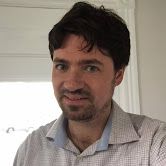The homelessness crisis is a crisis of Democracy: Paul Schofield in the Jacobin
Associate Professor of Philosophy Paul Schofield published an essay this July in the Jacobin, his fourth for this quarterly magazine and website. For this piece, he interviewed homeless people in Olympia, Wash., offering a political and philosophical analysis of American homelessness and our current at-risk democracy.
“Homeless people find themselves in what we might call a state of internal exile — cast out of, and excluded from, the society in which they physically remain,” Schofield writes.
The people he interviews speak of horrific, rat-infested, living conditions, the lack of response from law enforcement to violence committed against homeless people, and the double-edged sword of government-provided transitional housing. “If they can tell us we’re not allowed outside, then where are we all supposed to go?” one man Schofield interviewed asked, framing the central question of the article.
Where can people go when the left and right alike are uncomfortable coexisting with them? How can our society fix a problem that we have attempted to resolve using both extreme sympathy and extreme shame? Schofield offers a solution: “What’s needed is a broad, sustained transformational effort designed to bring those pushed to the margins back into the fold and to prevent people from being pushed out in the first place. What’s needed is a politics that is focused not just on keeping people alive, but on enabling everyone to flourish as the social beings they are.”
Faculty Featured

Paul E. Schofield
Associate Professor of Philosophy